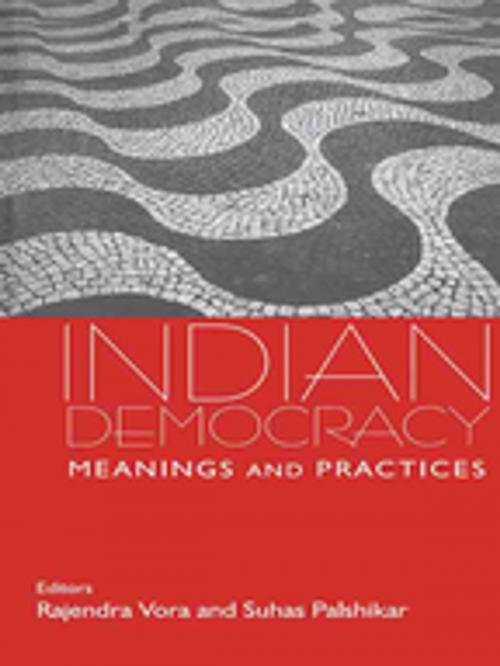Indian Democracy
Meanings and Practices
Nonfiction, Social & Cultural Studies, Political Science, Politics, History & Theory, Social Science, Sociology| Author: | ISBN: | 9789351500193 | |
| Publisher: | SAGE Publications | Publication: | December 11, 2003 |
| Imprint: | Sage Publications Pvt. Ltd | Language: | English |
| Author: | |
| ISBN: | 9789351500193 |
| Publisher: | SAGE Publications |
| Publication: | December 11, 2003 |
| Imprint: | Sage Publications Pvt. Ltd |
| Language: | English |
This volume examines how Indian democracy has survived the challenges posed by widespread illiteracy, poverty, secessionism and communalism—problems that have felled the fledgling democratic institutions of so many post-colonial societies. The contributors locate the reason for the resilience of Indian democracy in its history—that it was the product of a gradual evolution and not of a sudden imposition from above.
The essays in the volume, however, show that despite having stood the test of time, Indian democracy is not a democracy in any substantive sense. The economic policies of successive governments since 1985 have been basically anti-people; rampant casteism, communalism, and the use of money and muscle power have infiltrated the body politic. Mass mobilization has been powered by hate, making it a feature more typical of a nascent neo-fascist state than of a democracy. The `substantialization of democracy’—proper representation and people’s participation in decision making—still remains a distant ideal.
This volume examines how Indian democracy has survived the challenges posed by widespread illiteracy, poverty, secessionism and communalism—problems that have felled the fledgling democratic institutions of so many post-colonial societies. The contributors locate the reason for the resilience of Indian democracy in its history—that it was the product of a gradual evolution and not of a sudden imposition from above.
The essays in the volume, however, show that despite having stood the test of time, Indian democracy is not a democracy in any substantive sense. The economic policies of successive governments since 1985 have been basically anti-people; rampant casteism, communalism, and the use of money and muscle power have infiltrated the body politic. Mass mobilization has been powered by hate, making it a feature more typical of a nascent neo-fascist state than of a democracy. The `substantialization of democracy’—proper representation and people’s participation in decision making—still remains a distant ideal.















